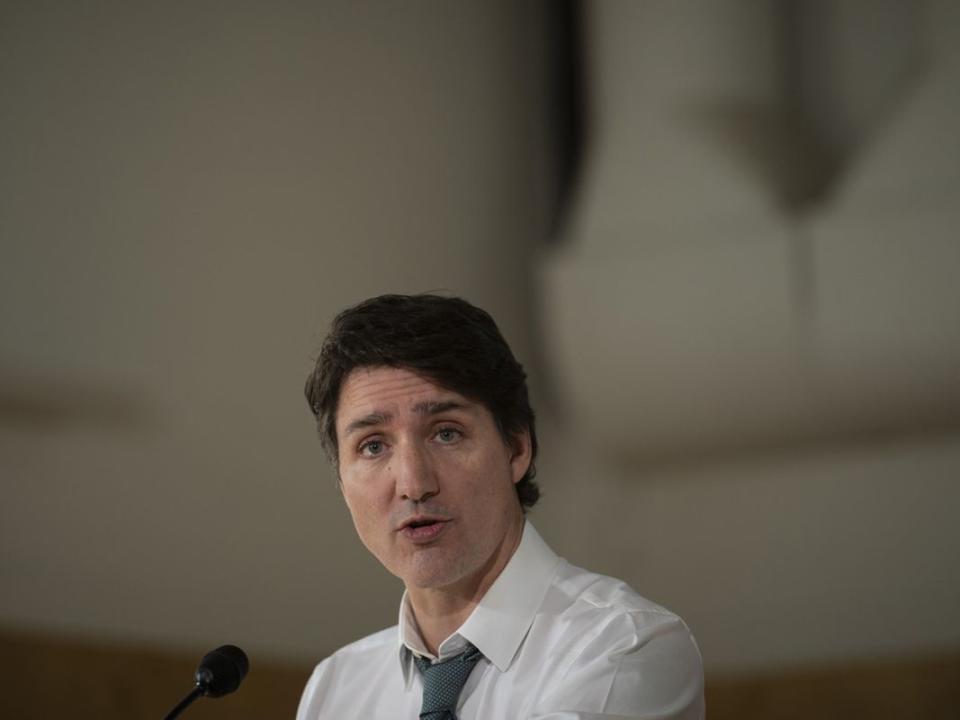William Watson: Do we really want risk-loving prime ministers?

Last week the Business Council of Canada’s Goldy Hyder sent around a personal appreciation of Brian Mulroney. Among the things he said he had learned from Canada’s 18th prime minister were that: “As a country, we can succeed when we are bold, take risks and embrace an ambitious vision for our future,” and that “Leadership is about having the courage to do what’s right for the long term … even if it’s unpopular in the short term.” And he concluded by hoping the upcoming federal budget will include “daring policies” like Mulroney’s.
I don’t know. It seems to me daring in prime ministers is over-rated. And visionary is fine so long as it’s not hallucinatory. If you want to go skydiving, that’s your choice. But when a prime minister jumps out of a plane, he takes the rest of us with him, whether we like it or not.
I’ve always thought Mulroney’s biggest achievement, Canada-U.S. free trade, was actually mainly incremental (symbolism aside, that is, and symbolism is far from unimportant). We’d had trade liberalization under the GATT since the early 1950s, while the Auto Pact of 1965 had given us free trade with the U.S. in our largest manufacturing industry. By the early 1980s tariffs were much lower than they had been. And we had adjusted to more open borders while at the same time pursuing our social policies of choice. A new deal with the U.S. forced many Canadians to admit realities they might have preferred to continue to ignore. But they were realities. If there was a leap of faith in free trade, it was more like crossing a creek, not jumping out of a plane.
After Mulroney died I went back and re-read his memoirs, which are funny, insightful and sufficiently candid that the f-word appears no fewer than 13 times, surely a record for Canadian prime ministerial memoirs. (There’s a nice story about Liberal Rat-Packer Brian Tobin crossing the Commons floor during the worst of the free trade ruckus in December 1988 to ask Mulroney privately “whether the government would, as usual, be providing and organizing planes to take all the members (of Parliament) home for the holidays … ‘Get your own f***ing plane,’” Mulroney says he told him.)
But the last third of the memoirs, which tell the long, painful story of the Meech Lake and Charlottetown Accords, are a reminder of just how big the downside of high-risk politics can be. That Pierre Trudeau repatriated the Constitution in 1981-2 without the consent of Quebec’s National Assembly did leave a long-term political problem for Canada in Quebec (even if the separatist government of René Lévesque was never going to sign on). One strategy for dealing with it would have been “benign neglect,” to borrow Daniel Patrick Moynihan’s famous phrase: to talk soothingly to Quebec, govern well, and slowly rebuild separatists’ tolerance for Canada. That would not have been without risk. It could easily have been painted as indifference, which might have led to Quebec’s gradual alienation.
But we will never know since Mulroney chose the also risky route of trying for a reconciliatory second constitutional deal — and chancing Quebec’s more abrupt alienation. He got unanimous agreement from the premiers at Meech Lake in 1987 and, after the three-year limit for ratification expired two provinces short, he got another unanimous agreement in 1992, though it was rejected in a national referendum, 55 to 45 per cent, in October of that year, with Mulroney resigning four months later. Meech was Mulroney’s choice. Charlottetown arguably was unavoidable, separatism having surged in Quebec after Meech failed.
On the Constitution, Mulroney dreamed big and dared, strapping the country onto his back and leaping out the cargo bay, and it didn’t end well. The country is still intact, just, but for a few years it was a close-run thing.
Late in the memoirs, assessing his own legacy, Mulroney says one of his major achievements was to reverse Pierre Trudeau’s economic policies, “which had almost succeeded in erecting a democratic socialist state in Canada.” That’s true, but the dismantlement, though it did require vision, was accomplished one piece at a time, rather like slowly taking apart the tangled mess of a collapsed bridge.
Trudeau’s son is widely chided for not having achieved much in his nine years in office. But, even putting denticare and pharmacare to the side, if you read the long list of carbon policies Ross McKitrick enumerates in his column today about economists and the carbon tax, it’s clear the younger Trudeau has succeeded in erecting an enviro-socialist state in Canada. He has done so by bold, single-minded, even daring pursuit of a clear, if misguided, vision. To begin with, it did not bring him unpopularity but now that his poll numbers are entering Mulroney territory (11 per cent approval in 1992) he is finding comfort in Mulroney’s maxim, which he repeated in his eulogy at the state funeral, that leaders must govern for the long term. (An adage most popular among unpopular prime ministers.)
To slowly and carefully dismantle what Justin Trudeau has wrought, do we need another bold visionary or, rather, a patient but determined incrementalist — or, strictly, decrementalist — like Stephen Harper or Jean Chrétien? You will decide.
Financial Post
Bookmark our website and support our journalism: Don’t miss the business news you need to know — add financialpost.com to your bookmarks and sign up for our newsletters here.

 Yahoo Finance
Yahoo Finance 